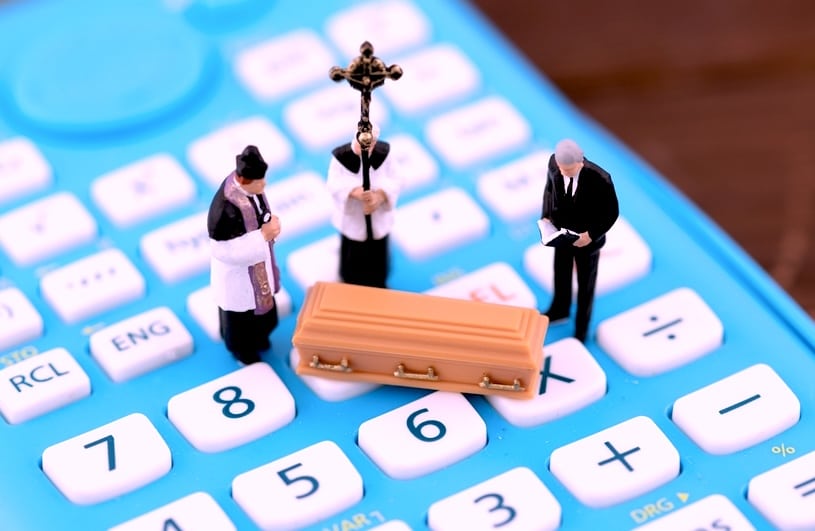Blog > Tax Legislation amp Proposals > Are Funeral Expenses Tax Deductible?
Are Funeral Expenses Tax Deductible?
November 27, 2023 - Friendly Tax Expert

Losing a loved one is undoubtedly an emotional and difficult time for anyone. Unfortunately, it often comes with a hefty price tag as well. Funeral expenses can quickly add up, leaving family members grappling with the financial burden on top of their grief. Many individuals wonder if they can deduct these expenses from their tax returns to alleviate some of the financial strain.
In this blog post, we will explore the topic of whether funeral expenses are tax deductible. We will discuss when this can be possible and the criteria that must be met for these expenses to qualify as tax deductible.
Can an Individual Deduct Funeral Expenses From my Tax Returns?
Unfortunately, individual taxpayers cannot claim tax deductions for funeral expenses. The Internal Revenue Service (IRS) does allow deductions for medical expenses, but funeral costs fall outside the scope of these deductions. You cannot deduct funeral expenses from your income tax return. Only the deceased's estate can benefit from any potential tax deductions related to funeral expenses.
When Are Funeral Expenses Tax Deductible?
While funeral expenses are generally not tax-deductible for individual taxpayers, there are some exceptions for eligible estates. If the estate is responsible for paying these costs, it may be able to claim a deduction on its tax return.
To qualify for the deduction, the estate must meet certain criteria. First, the estate must be eligible to file an estate tax return. In the 2022 tax year, the federal estate tax exemption limit is $12,060,000. If the estate's value is below this threshold, it is not required to file an estate tax return and cannot claim the deduction for funeral expenses.

If the estate is eligible, the executor will need to complete Schedule J of Form 706, which is the United States Estate (and Generation-Skipping Transfer) Tax Return. On this form, the eligible funeral expenses should be itemized, including costs such as burial, funeral service, cremation services, transportation, and cemetery or mausoleum fees.
It's important to note that any reimbursements received for funeral expenses must be deducted from the total tax deduction. For example, if the estate receives a death benefit from a life insurance policy that covers the funeral costs, the amount reimbursed should be subtracted from the claimed deduction.
Are Funeral Expenses Tax Deductible?
It Depends. As mentioned, while individual taxpayers cannot claim tax deductions for funeral expenses, there are some exceptions. Funeral costs may be deductible if they are paid out by the decedent's estate. This means that if the expenses are covered by the funds and assets left by the deceased, the estate can claim a deduction on the estate tax returns.
It's important to note that these deductions are subject to certain limitations and requirements. Expenses must be reasonable and necessary, and the estate must provide documentation to support the deduction.

Best Tax Resolution Company Near You
While it may be disappointing to learn that funeral expenses are not tax deductible for individual taxpayers, understanding the rules and regulations surrounding this topic can provide peace of mind during a challenging time.
It is always advisable to consult with a tax professional or financial advisor for personalized guidance regarding your specific situation. If you need any help with tax-related matters, including estate taxes and deductions for funeral expenses, the experts at Federal Tax Resolution are here to help. Our team of experienced professionals can assist you in navigating the complexities of tax laws and regulations to ensure that you receive the best possible outcome.
